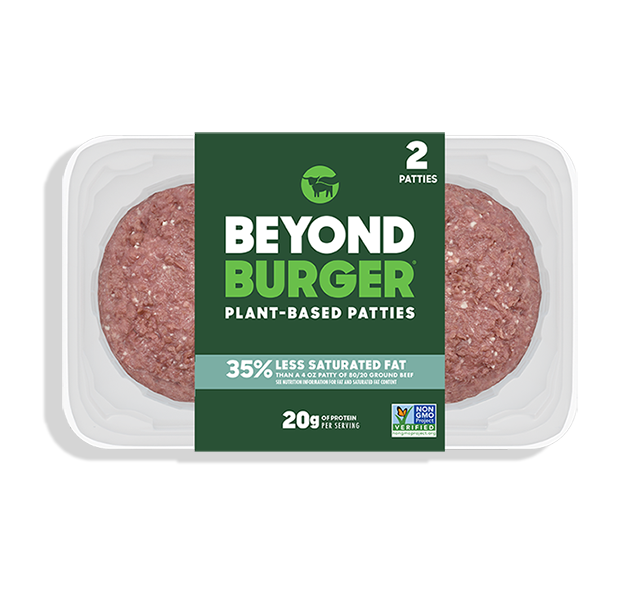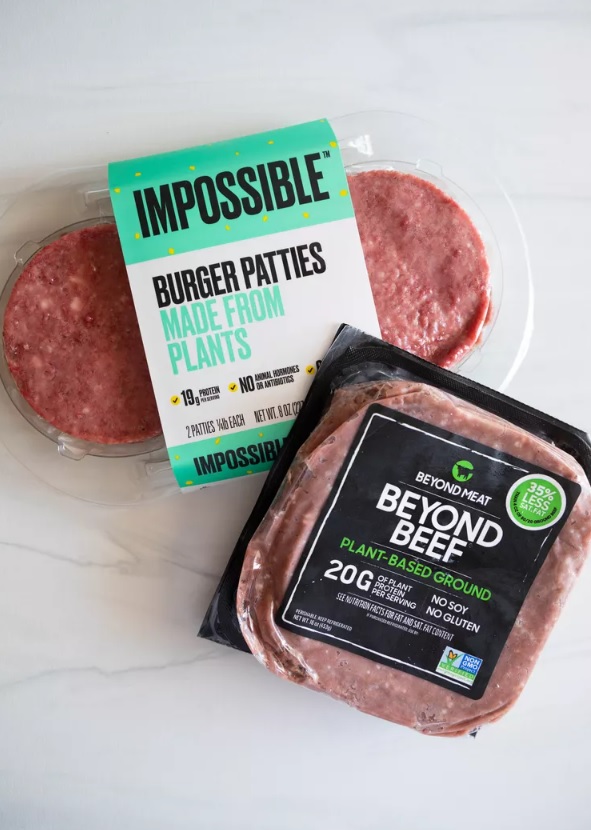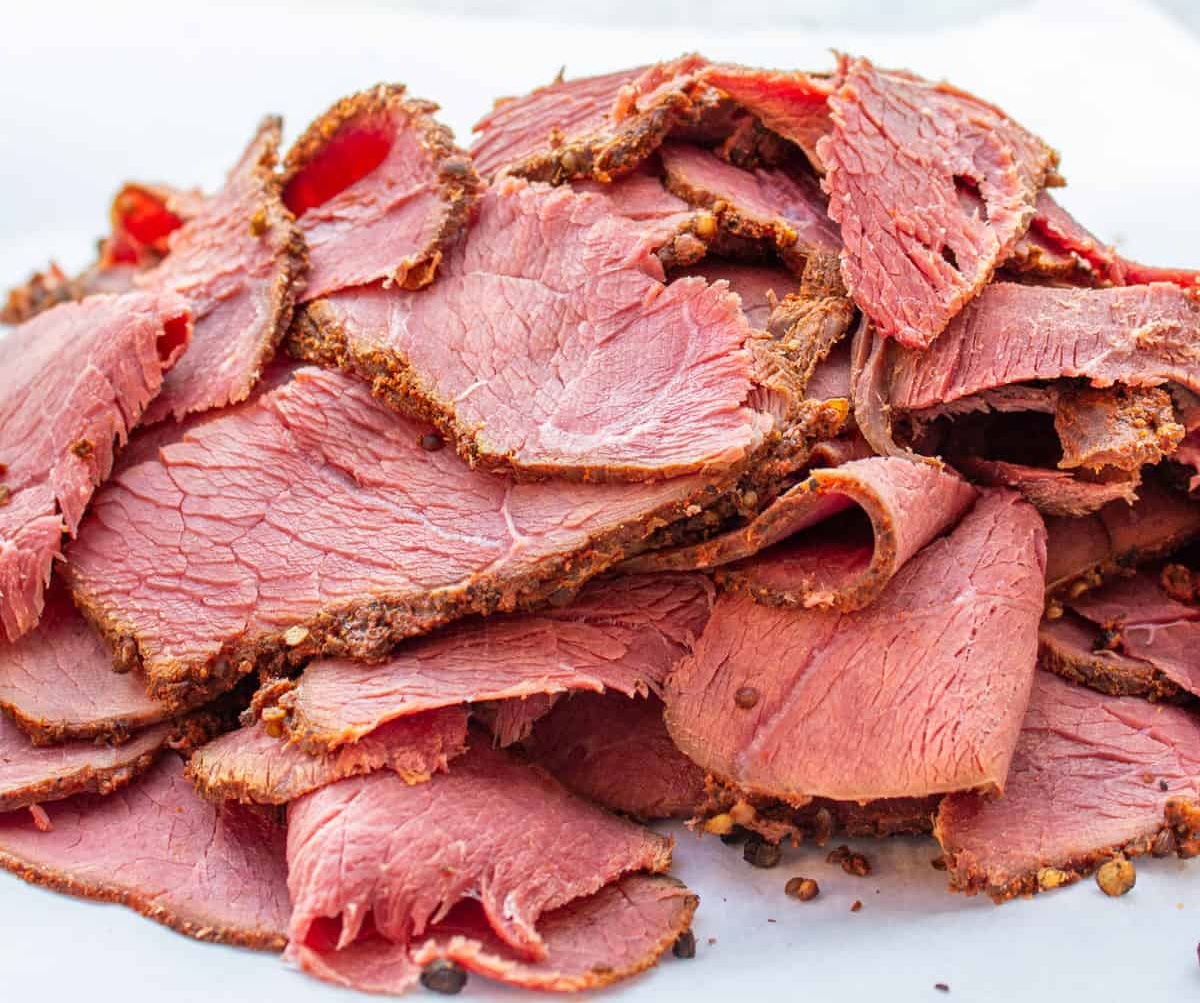Why Fake (Imitation) Meat Products Are Bad For Your Health And The Environment
With the increasing concern over climate change, many people are turning to plant-based meat alternatives as a way to reduce their carbon footprint. However, recent research suggests that these products may not be the healthy and sustainable options they claim to be.
That’s why it’s important to understand why fake (imitation) meat products are bad for your health and the environment. In this article, we’ll explain what exactly fake meat is and what are the problems associated with it.[1]
We will also offer alternative solutions for those who want to make healthier and environmentally conscious food choices. So, let’s get started!

What Is Fake Meat?
Before exploring why fake meat products are bad for your health and the environment, let’s quickly go through the definition. Fake meat basically refers to real meat substitutes made entirely from plant-based or cell-based ingredients.
Plant-based meat alternatives are designed to mimic real meat’s taste, texture, and appearance. They often use a combination of protein sources like soy, peas, or lentils, along with other ingredients like vegetable oil, starches, and flavorings.
On the other hand, cell-based meat, also known as lab-grown meat or cultured meat, is made by cultivating animal cells in a lab setting. The cells are then harvested and treated to create a product that resembles real meat.
The Problems With Fake Meat
Recently, the popularity of both plant-based and cell-based fake meat has grown significantly with emerging fake-meat producers.[2]
Moreover, many fast-food chains have also started offering meat alternatives on their menus. But despite their growing popularity, there are still plenty of reasons why fake meat products are bad for your health and the environment.
Health Concerns
One of the primary concerns with fake meat is its high level of processing. It contains additives, preservatives, and other synthetic ingredients that can be harmful to our health.
For example, some plant-based meat alternatives are high in sodium and saturated fats, which can increase the risk of heart disease and other health problems.
Environmental concerns
Fake meat products are often promoted as more sustainable and environmentally friendly, but the truth is more complex. It’s because plant-based meat alternatives also require large amounts of land, water, and other resources to produce.[3]
If you’re still wondering why fake (imitation) meat products are bad for your health the answer is not quite as clear-cut as some companies would have you believe.
However, there are still concerns about the sustainability of some of the ingredients used in these products and the energy required to produce and process them.
On the other hand, while cell-based meat has the potential to be a more sustainable option, the technology and products are still in their infancy, and the long-term environmental impact of its production remains unknown.
Nutritional Facts About Fake Meat
Let’s have a look at all the nutritional differences between fake meat and real meat. It will help you better understand why fake (imitation) meat products are bad for your health and the environment.[4]
- Protein
Both real meat and fake meat products can be good protein sources, but real meat generally contains more complete proteins and essential amino acids than plant-based alternatives. Most plant-based meat alternatives are often lower in certain amino acids such as methionine, lysine, and leucine that animal protein sources contain abundantly.
- Fat
Plant-based fake meat products often contain less saturated fat than real meat. However, some may contain higher levels of unhealthy fats, such as trans fats, compared to traditional plant-based protein sources such as tofu, beans, and lentils.
- Calories
Real meat is generally higher in calories than fake meat alternatives, which can be a consideration for those trying to manage their weight. However, some fake meat products may contain added oils or other ingredients that increase the calorie content.
- Nutrients
Real meat is a good source of important nutrients like iron, vitamin B12, and zinc, which can be harder to obtain from plant-based sources. While some fake meat products may be fortified with these nutrients, they may not be as easily absorbed by the body as those found in real meat.
Remember, the health benefits of high-quality, real meat far outweigh those of fake meat. Don’t compromise on your health or taste – choose real, high-quality meat from Butcherbox, sourced from trusted farms across the USA.
What to Choose Instead of Fake Meat?
If you’re looking to reduce your consumption of animal products but are concerned about the potential health and environmental risks of fake meat, there are plenty of other options available to you.
- One simple solution is to eat more whole plant foods, such as fruits, vegetables, nuts, legumes, and seeds. These foods contain low levels of fat and high quantities of fiber, vitamins, and minerals, making them a great choice for overall health.
- You can also consider adding some soy-based products like tofu, tempeh, or edamame to your diet. These foods are minimally processed and have been a staple in many traditional cuisines for centuries.
- You can also explore other types of plant-based protein sources, such as seitan (wheat gluten), pea protein, or even insects (yes, really!).
Ultimately, the key is to focus on whole, minimally processed foods that provide a variety of nutrients and are easy to prepare and consume. By doing so, you can enjoy a healthy, sustainable diet that’s good for both you and the planet.
Conclusion
Despite the marketing efforts by many brands convincing you to buy fake meat, there still are a lot of reasons why fake (imitation) meat products are bad for your health and the environment.
By focusing on whole, minimally processed plant foods and exploring other types of plant-based protein sources, you can enjoy a healthy, eco-friendly diet without relying on fake meat products.
In the end, the choice is yours. By making informed decisions about what you put on your plate, you can create a diet that’s good for you and for the planet as well.
FREQUENTLY ASKED QUESTIONS
Are fake meats good for the environment?
It depends on the type and brand of fake meat. Some have a lower environmental impact than real meat, but others have a similar or even greater impact.
Why artificial meat is bad?
Some artificial meats contain unhealthy ingredients, such as high levels of sodium, saturated fat, and preservatives. Additionally, some people prefer the taste and nutritional value of real meat.
Are meat substitutes actually better for the environment?
Meat substitutes generally have a lower environmental impact than real meat, but it depends on factors such as production methods and transportation.
What is the problem with fake meat?
Some fake meats contain unhealthy ingredients, have a high processing cost, and may have a higher environmental impact than advertised.
Why real meat is better than fake meat?
Real meat generally contains more nutrients and protein than fake meat, and some people prefer the taste and texture of real meat. It also costs much less than fake meat.
[1] Andreani G, Sogari G, Marti A, Froldi F, Dagevos H, Martini D. Plant-Based Meat Alternatives: Technological, Nutritional, Environmental, Market, and Social Challenges and Opportunities. Nutrients. 2023 Jan 15;15(2):452.
[2] Adams, K., Sinno, L., Tamez, M., Marrero, A., Bhupathiraju, S. N., & Mattei, J. (2022). Environmental Impact of Animal-Based Food Production and the Feasibility of a Shift Toward Sustainable Plant-Based Diets in the United States. Frontiers in Sustainability, 3.
[3] Santo, R. E., Kim, B. F., Goldman, S. E., Dutkiewicz, J., Biehl, E. M., Bloem, M. W., Neff, R. A., & Nachman, K. E. (2020). Considering Plant-Based Meat Substitutes and Cell-Based Meats: A Public Health and Food Systems Perspective. Frontiers in Sustainable Food Systems, 4.
[4] Ernstoff, Alexi & Tu, Qingshi & Faist, Mireille & Del Duce, Andrea & Mandlebaum, Sarah & Dettling, Jon. (2019). Comparing the Environmental Impacts of Meatless and Meat-Containing Meals in the United States. Sustainability. 11. 6235. 10.3390/su11226235. (150 Words)




